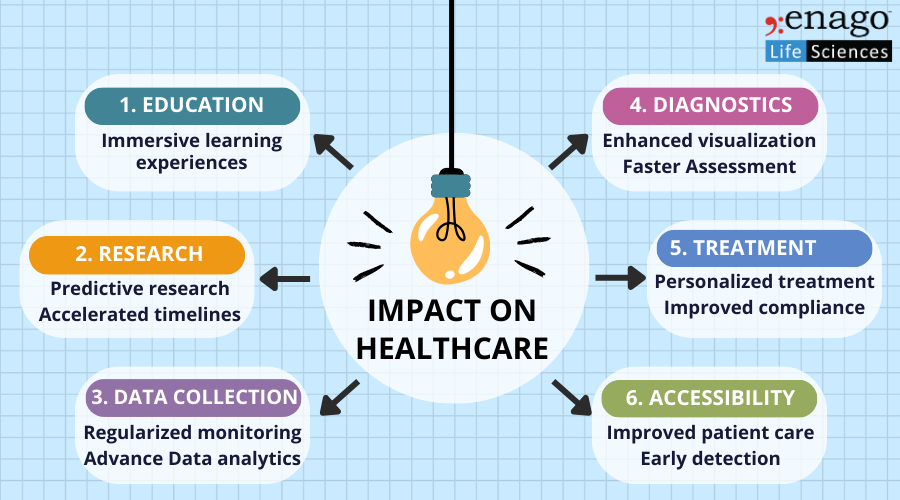Discover the groundbreaking innovations shaping the future of healthcare with cutting-edge technology and research that will revolutionize medicine.

Image courtesy of Rostislav Uzunov via Pexels
Table of Contents
As we step into the future, the field of medicine is experiencing rapid advancements in healthcare technology and research. These cutting-edge technologies are revolutionizing the way we deliver care, diagnose diseases, and treat patients. In this blog post, we will explore some of the most promising developments that are shaping the future of healthcare.
AI-Powered Diagnostics
One of the most exciting frontiers in healthcare technology is the use of artificial intelligence (AI) for diagnostics. AI algorithms are being trained to analyze medical images, genetic data, and patient records to assist healthcare professionals in making accurate diagnoses faster than ever before. This technology has the potential to revolutionize the way we detect and treat diseases.
Case studies have shown how AI-powered diagnostics can improve the accuracy and efficiency of medical imaging interpretation. By leveraging machine learning algorithms, radiologists can detect subtle abnormalities in X-rays, MRIs, and CT scans that might have been missed by the human eye. This not only speeds up the diagnosis process but also reduces the chances of misdiagnosis.
Precision Medicine
Precision medicine is a groundbreaking approach that takes into account individual genetic variations, environmental factors, and lifestyle choices to tailor healthcare treatments to each patient’s unique characteristics. By understanding a patient’s genetic makeup, healthcare providers can prescribe medications and therapies that are most likely to be effective for that individual, while minimizing potential side effects.
Personalized healthcare treatments based on precision medicine have already shown promising results in cancer treatment. By analyzing a patient’s genetic profile, oncologists can identify targeted therapies that specifically target cancer cells, leaving healthy cells unharmed. This approach has led to improved outcomes and survival rates for cancer patients.
Telemedicine and Remote Monitoring
Telemedicine and remote monitoring technologies are revolutionizing the way patients receive care, particularly in remote or underserved areas. Through video consultations, virtual follow-ups, and remote monitoring devices, patients can now access healthcare services from the comfort of their own homes. This not only improves convenience for patients but also reduces the burden on healthcare facilities.

Image courtesy of via Google Images
Remote monitoring is particularly beneficial for patients with chronic conditions such as diabetes, hypertension, or heart disease. By tracking vital signs, medication adherence, and symptoms in real-time, healthcare providers can intervene promptly and prevent complications before they escalate. This proactive approach to care has been shown to improve patient outcomes and reduce hospital readmissions.
3D Bioprinting and Organ Regeneration
Imagine a world where organs can be printed on demand using 3D bioprinting technology. This groundbreaking innovation is bringing us closer to that reality by enabling scientists to create living tissues and organs layer by layer. 3D bioprinting has the potential to revolutionize organ transplantation and tissue engineering, offering hope to patients on long waiting lists for donor organs.
Recent advancements in 3D bioprinting have already resulted in successful experiments in printing skin, cartilage, and even small organs like kidneys. These biofabricated tissues can be implanted in patients to restore function and improve quality of life. While there are still challenges to overcome, such as ensuring vascularization and long-term viability, the potential of 3D bioprinting in healthcare is truly groundbreaking.
Conclusion
The future of medicine is bright, thanks to the incredible advancements in healthcare technology and research. AI-powered diagnostics, precision medicine, telemedicine, and 3D bioprinting are just a few examples of the innovative tools reshaping the way we deliver healthcare. As healthcare professionals, it is essential to stay informed and embrace these advancements to provide the best possible care for our patients.
By harnessing the power of these cutting-edge technologies, we can improve patient outcomes, enhance the efficiency of healthcare delivery, and ultimately save lives. The future of medicine is here, and it is filled with endless possibilities for innovation and progress.
Powered by Texta.ai Blog Automation
